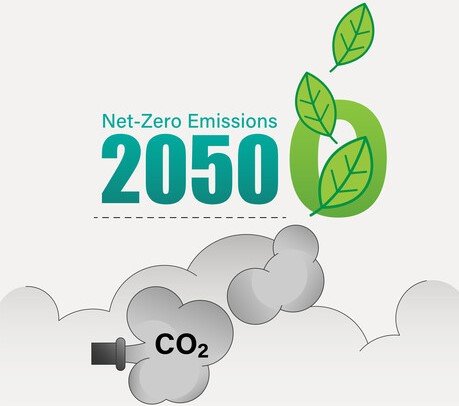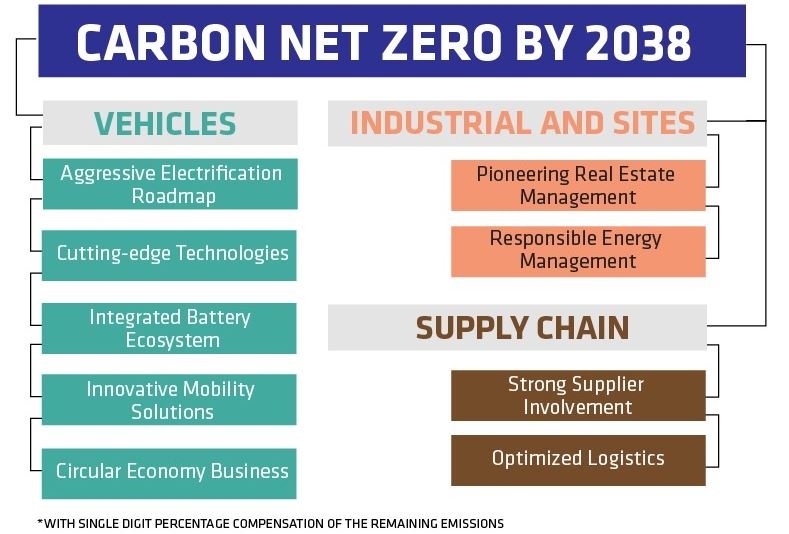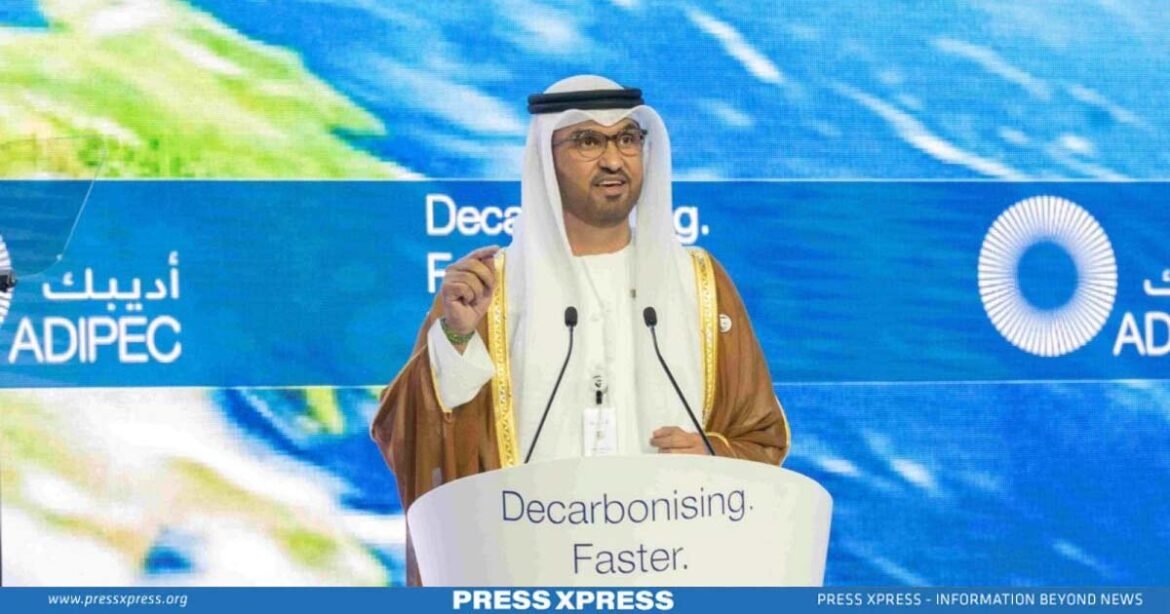The global community is witnessing a pivotal moment in the fight against climate change, as over 20 major oil and gas corporations rally behind COP28 President Sultan Al-Jaber’s call for carbon reduction.
On Monday, COP28 President Sultan Al-Jaber announced that over 20 oil and gas corporations have come together in support of his initiative to reduce carbon emissions in anticipation of the upcoming United Nations climate change summit. Jaber, who also serves as the head of the UAE-based oil giant ADNOC, had previously called upon the energy industry to actively engage in the fight against climate change earlier this year. His appointment as the leader of COP28 next month generated controversy due to his country’s OPEC membership and significant oil exporting status.
Speaking at an oil and gas conference in Abu Dhabi, Jaber emphasized the necessity for a comprehensive transformation of the entire economy, one that currently consumes the equivalent of 250 million barrels of oil, gas, and coal each day. He addressed major energy companies, stressing that the industry had long been perceived as a hindrance to progress in combating climate change, and this was their opportunity to demonstrate that they are, in fact, a pivotal part of the solution.
Jaber revealed that more than 20 oil and gas companies have positively responded to his call to align with targets of achieving Net-Zero emissions by 2050, zero methane emissions, and the elimination of routine flaring by 2030, although he did not provide specific details.
The COP28 summit is scheduled to take place in Dubai from November 30 to December 12. In the lead-up to COP28, the global debate on addressing global warming remains divided, with some countries advocating for a fossil fuel phase-out agreement, while others insist on maintaining a role for coal, oil, and natural gas.
This summit is considered a crucial opportunity for governments to accelerate actions aimed at limiting global warming since many nations currently appear to be falling behind in their commitments to restrict the global temperature rise to 1.5 degrees Celsius. Prior to COP28, the heads of major oil and gas companies convened with leaders from heavy industries in the UAE to discuss their commitments to decarbonization.
Net-Zero Emission
The 2050 Net-Zero Emissions Scenario (NZE) represents a theoretical framework devised by the IEA, illustrating a trajectory for the global energy sector to attain Net-Zero CO2 emissions by 2050. Notably, advanced economies are anticipated to achieve Net-Zero emissions ahead of others.
While an increasing number of nations have made commitments to reach Net-Zero emissions in the coming decades, the pledges made by governments thus far, even if fully realized, fall significantly short of the necessary actions required to drive global energy-related carbon dioxide emissions to Net-Zero by 2050. This critical achievement is essential to providing the world with a realistic opportunity to limit the rise in global temperatures to 1.5°C.

This distinctive report stands as the world’s inaugural comprehensive examination of the strategies necessary to transition to a Net-Zero energy system by 2050. It emphasizes the importance of ensuring stable and affordable energy supplies, universal access to energy, and robust economic growth throughout this transformation. The report outlines a cost-effective and economically advantageous pathway, ultimately resulting in a clean, dynamic, and resilient energy economy dominated by renewable sources like solar and wind, rather than reliant on fossil fuels. Furthermore, the report delves into key uncertainties, including the roles of bioenergy, carbon capture, and changes in human behavior in achieving the net zero goal.

Bangladesh committed to reduce GHG emissions
Bangladesh, as a burgeoning economy seeking to embrace clean technologies, must channel focused efforts and implement appropriate policies to attain a Net-Zero emissions status by 2050. The nation has already taken significant steps by adopting a Nationally Determined Contribution (NDC) Climate Action Plan, aimed at reducing emissions and enhancing resilience to climate-related challenges.
Within this NDC, Bangladesh has made commitments to curtail greenhouse gas (GHG) emissions within the power, industry, and transport sectors. Specifically, the country aims to achieve a 5% reduction below ‘business-as-usual’ GHG emissions by 2030 through domestic resources alone, or a more ambitious 15% reduction below ‘business-as-usual’ GHG emissions by 2030 with the provision of suitable support from developed nations.
Key highlights:
- Bangladesh’s substantial increase in its conditional emission reduction target, which has risen from 36 million tons of CO2 equivalent (MtCO2e) to 89.47 MtCO2e by 2030 when compared to business as usual
- Additionally, the country has elevated its unconditional emissions reduction goal from 12 MtCO2e to 27.56 MtCO2e by 2030 again relative to business as usual
The revised NDC also emphasizes advancements in adaptation efforts, a crucial priority for Bangladesh. Currently, the nation is actively engaged in developing a comprehensive National Adaptation Plan (NAP) to bolster its resilience and readiness in the face of climate impacts.
Conclusion
The global community is witnessing a pivotal moment in the fight against climate change, as over 20 major oil and gas corporations rally behind COP28 President Sultan Al-Jaber’s call for carbon reduction. This unified effort comes at a time when the world faces the urgent challenge of transitioning to a Net-Zero emissions future by 2050. Meanwhile, nations like Bangladesh are taking ambitious steps to align their commitments with global climate goals, emphasizing the need for concerted efforts, supportive policies, and adaptation strategies. As we approach COP28 and explore the Net-Zero Emissions Scenario, it is clear that collaboration, innovation, and transformative actions are essential to address the pressing climate crisis and secure a sustainable future for all.


